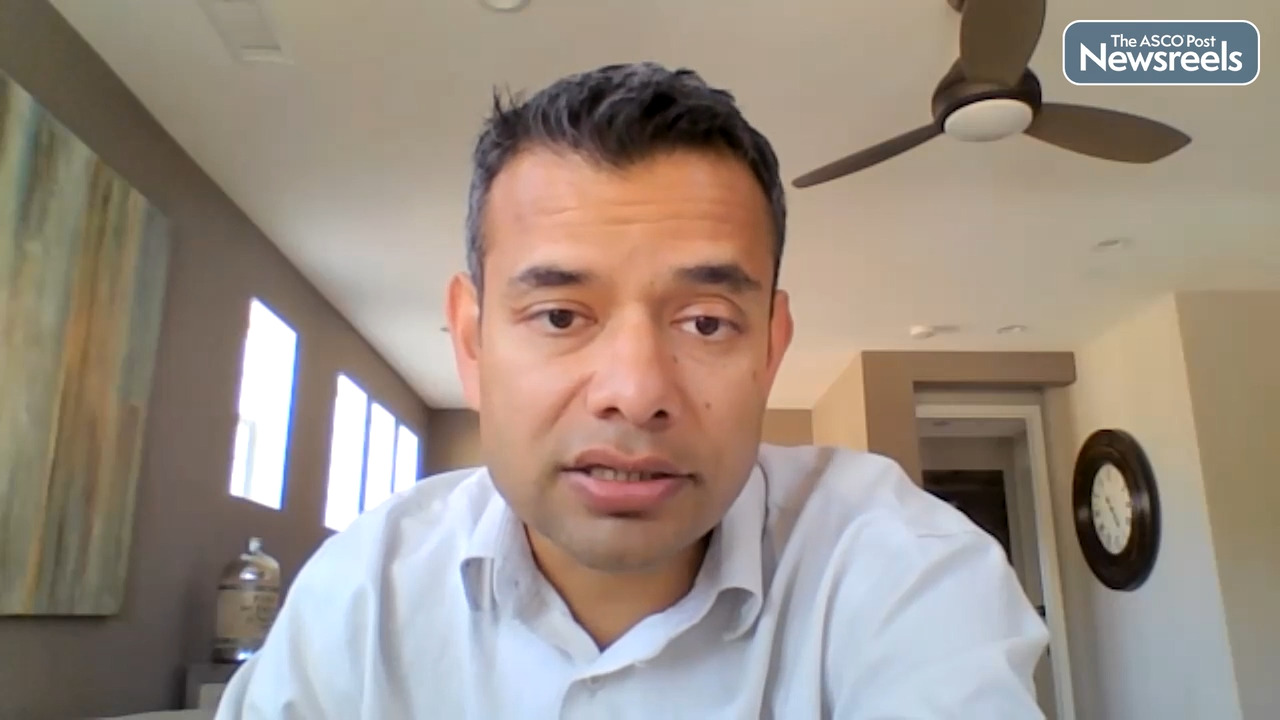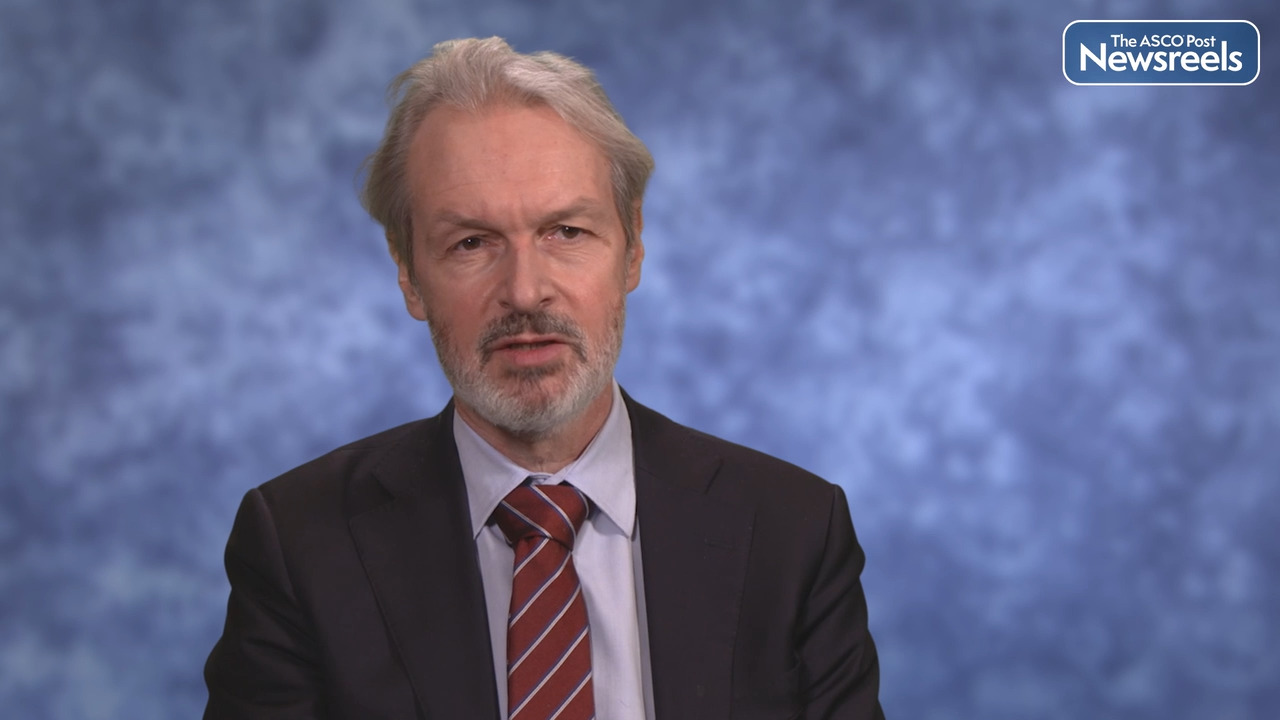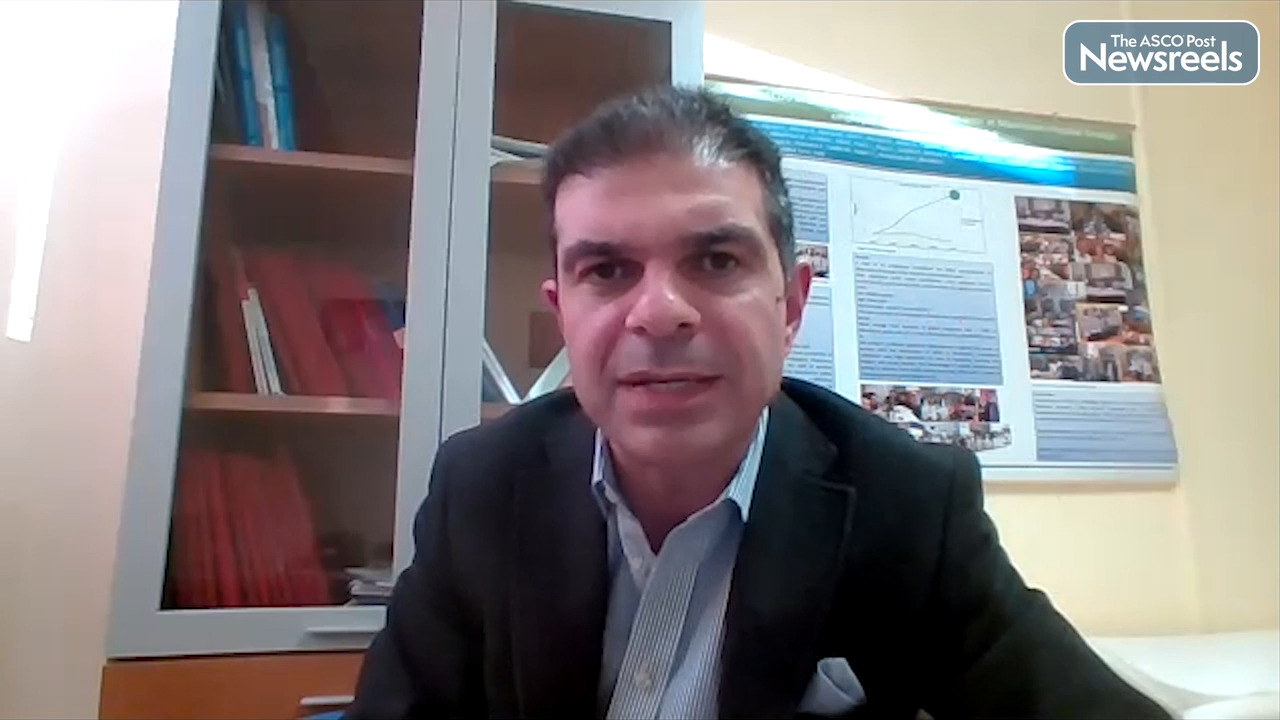Karen E. Knudsen, PhD, MBA, on Addressing Disparities in Genitourinary Cancers
2022 ASCO Genitourinary Cancers Symposium
Karen E. Knudsen, PhD, MBA, Chief Executive Officer of the American Cancer Society, discusses ways to address the inequities in genitourinary screening, treatment, and outcomes. Her suggestions focus on increasing awareness of screening, identifying risk factors, the dramatic rise in incidence among Hispanic individuals, and the basis for increased mortality in Black men.
The ASCO Post Staff
Jonathan E. Rosenberg, MD, of Memorial Sloan Kettering Cancer Center, discusses phase II findings from the BAYOU trial, which studied durvalumab in combination with olaparib for first-line treatment of platinum-ineligible patients with unresectable, stage IV urothelial carcinoma. Because secondary analyses indicated a potential progression-free survival benefit with this combination, there may be a role for PARP inhibitors in the treatment of advanced disease with homologous recombination repair mutation (Abstract 437).
The ASCO Post Staff
Sumanta K. Pal, MD, of City of Hope National Medical Center, discusses some key research developments in kidney cancer, including data on nivolumab and ipilimumab with or without CBM588 in metastatic renal cell carcinoma; intestinal microbiome associated with the development of grade 3 or 4 adverse events in patients with metastatic disease who have been treated with nivolumab plus ipilimumab and probiotic support; the link between TERT promoter mutations and clinical outcome with immune checkpoint inhibitor therapy for advanced urothelial cancer; mutations in the androgen receptor gene in patients with prostate cancer receiving novel androgen deprivation treatments; and findings on waning antibody titers in patients who have received COVID-19 vaccinations (Roundup of Abstracts 371, 561, 374, Posters 38 and 48).
The ASCO Post Staff
Xin Gao, MD, of Massachusetts General Hospital, discusses phase I/II findings on bavdegalutamide, an androgen receptor protein degrader, which showed clinical activity in heavily pretreated patients with metastatic castration-resistant prostate cancer who received one to two prior novel hormonal agents.
The ASCO Post Staff
Axel Bex, MD, PhD, of The Netherlands Cancer Institute, discusses an efficacy, safety, and biomarker analysis of neoadjuvant avelumab and axitinib in patients with localized renal cell carcinoma who are at high risk of relapse after nephrectomy (Abstract 289).
The ASCO Post Staff
Massimo Di Maio, MD, of the University of Turin, discusses the Meet-URO12 study, which showed that maintenance niraparib plus best supportive care (BSC) did not prolong progression-free survival, compared with BSC alone, among patients with urothelial cancer that did not progress after first-line platinum-based chemotherapy.





